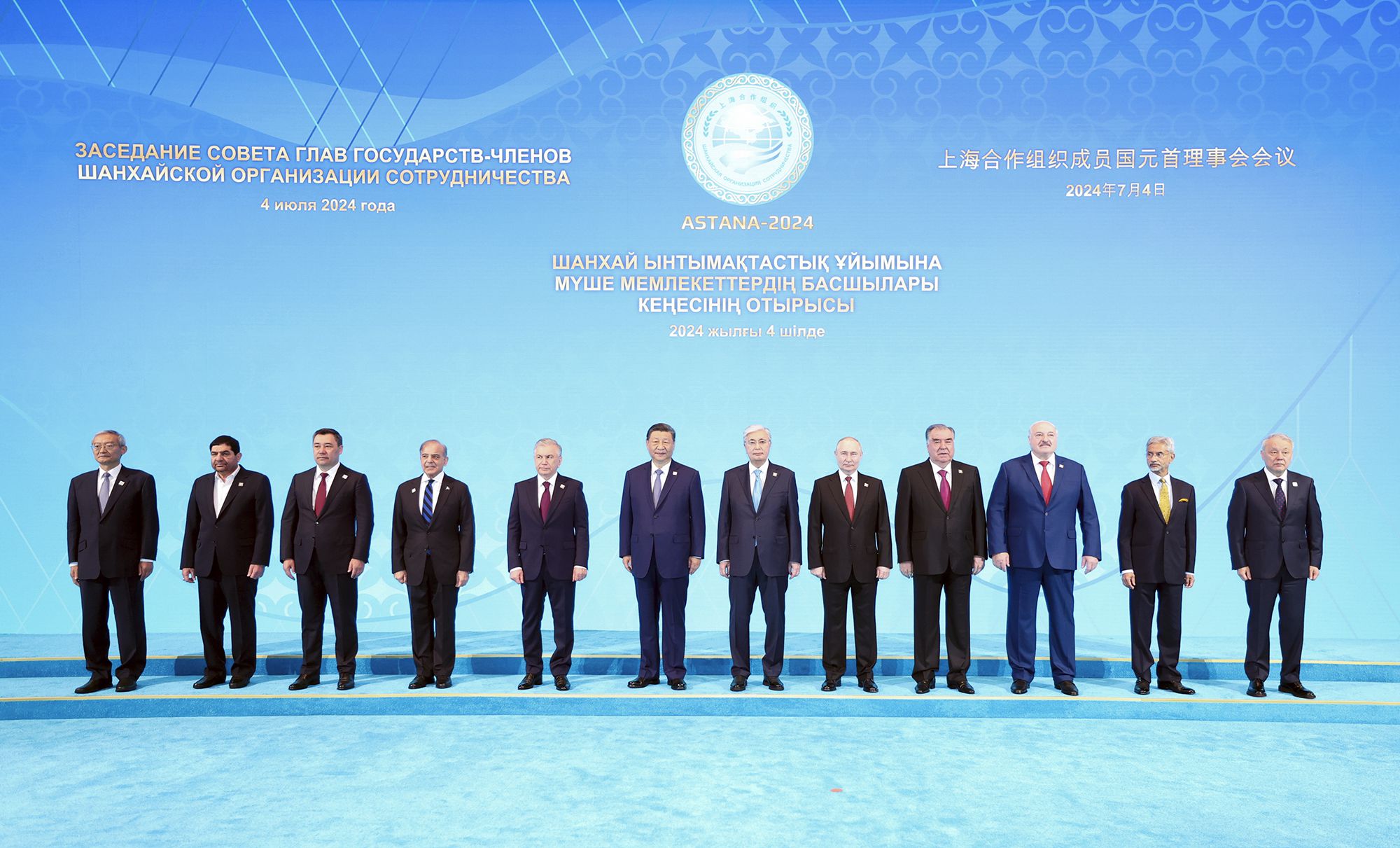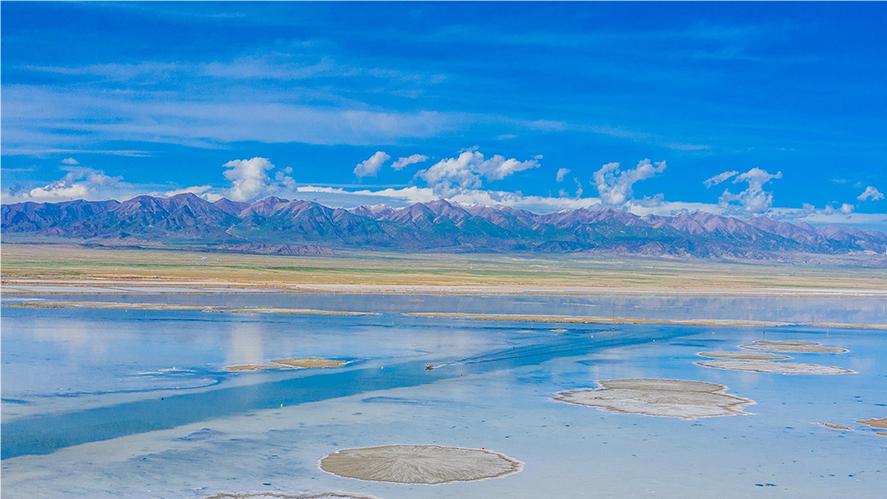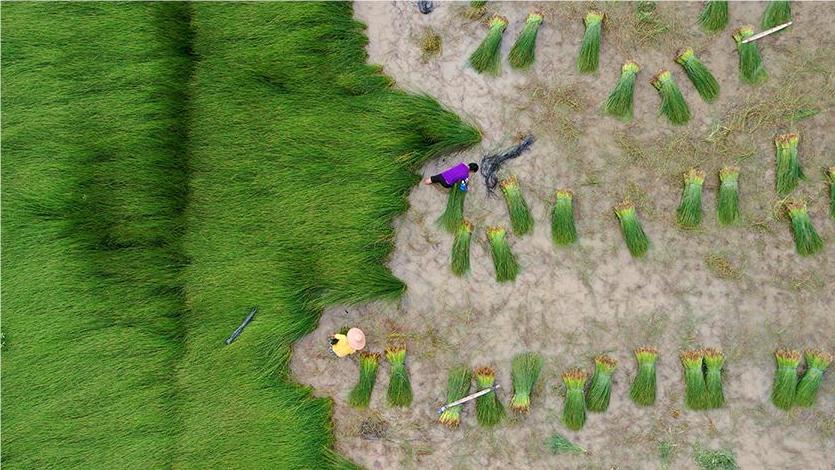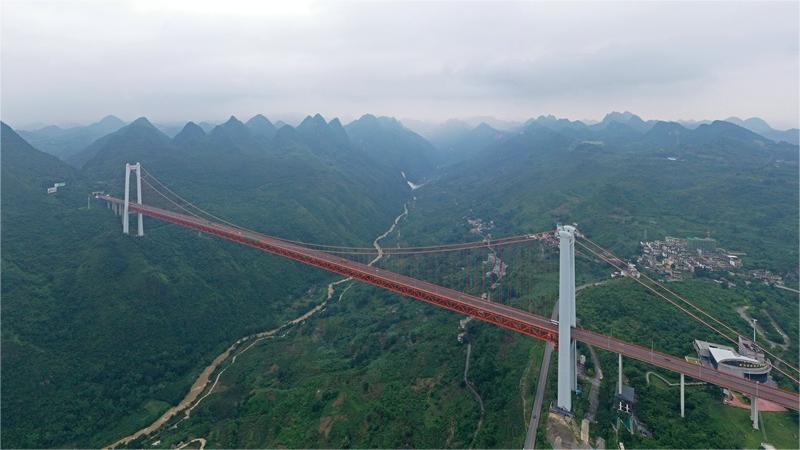Xi hails solid foundation of SCO, warns of real threat, risks

Chinese President Xi Jinping poses for a group photo with leaders attending the 24th Meeting of the Council of Heads of State of the Shanghai Cooperation Organisation at the Independence Palace in Astana, Kazakhstan on July 4, 2024. (Photo: Xinhua)
Chinese President Xi Jinping on Thursday called on the members of the Shanghai Cooperation Organisation (SCO) to ensure security in the face of real threats from the Cold War mentality, and safeguard the right to development in the face of real risks from the "small yard, high fences" mindset, while commending the solid foundation of the SCO amid growing membership.
Xi made the remarks when addressing the 24th Meeting of the Council of Heads of State of the SCO held in Astana, Kazakhstan. Among the highlights of the meeting, Belarus officially became a member of the association, further underscoring the growing attractiveness and significance of the SCO on the regional and global stages amid rising geopolitical tensions and protectionism spearheaded by some Western countries.
Following the summit in Astana, China will take over the rotating presidency of the SCO for 2024 and 2025. Foreign experts commended China on its important role within the SCO family and globally, saying that China has contributed greatly not only to cooperation within the SCO, but also to peace and development in the region and across the broader international community.
When attending the expanded meeting of the SCO, or SCO+, also held on Thursday, Xi called for building a shared home featuring solidarity and mutual trust, peace and tranquility, prosperity and development, good-neighborliness and friendship, as well as fairness and justice.
He called on the SCO members to strengthen exchanges on governing experience, and hold an SCO political party forum at a proper time.
Win-win approach
At the SCO meeting, Xi urged the member states to adhere to the vision of common, comprehensive, cooperative, and sustainable security, address complex and intertwined security challenges through dialogue and coordination, and respond to the profoundly changing international landscape with a win-win approach, so as to build a world of lasting peace and universal security, the Xinhua News Agency reported.
SCO members should consolidate unity and jointly oppose external interference in the face of the real challenges of interference and division, Xi said.
Xi pointed out that the SCO stands on the right side of history, fairness, and justice, and is of great significance to the world. He noted the foundation for SCO cooperation has become more solid as the SCO "big family" expands its membership, covering three continents around the world.
"Belarus's joining the SCO shows that the organization's attractiveness and vitality are constantly strengthening," Li Xin, director of the Institute for Eurasian Studies at the Shanghai University of Political Science and Law, told the Global Times on Thursday, noting that the SCO's expanding membership also highlighted its international influence.
The SCO summit convened at a time when the world faces a rapidly rising number of challenges, including surging geopolitical tensions and protectionism, as some Western countries led by the US are constantly stirring up tensions and even conflict and undermining global free trade in a desperate attempt to preserve their diminishing dominance.
In a statement following the summit, leaders of the SCO members called for the building of a multipolar world to address pressing security risks and challenges. They said in the statement that current security risks and challenges are global in nature, and can only be resolved through the building of a multipolar world, the improvement of global economic governance, and coordinated efforts to tackle both conventional and nonconventional security threats.
Imposing unilateral sanctions violates the principles of international law, and is detrimental to international economic relations, the leaders said in the statement.
Against the increasingly complex global geoeconomic situation, strengthened unity and cooperation among SCO members is of great importance to ensuring security and advancing development not just within the organization but also in the broader developing world, foreign and Chinese experts said.
As the number of challenges and threats grows, "the SCO has strengthened the interaction among its members to strengthen global security, emphasizing the fight against transnational challenges and threats," Guzel Maitdinova, a professor at the Department of Foreign Regional Studies and Foreign Policy at Russian-Tajik (Slavonic) University, told the Global Times in an earlier interview.
In addition to cooperation in the security arena, SCO members should also further enhance collaboration in economic and technological fields, experts said.
"Economic issues will remain the area of special attention of the SCO in the coming years, especially when taking into account the improvement of national economies and full-fledged cooperation among SCO members," Gulnar Shaimergenova, director of the China Studies Center in Kazakhstan, told the Global Times in an interview.
China's contributions
In terms of both security and economic cooperation, China has contributed greatly to the SCO, experts said.
"China has also made a significant contribution to the development of economic cooperation within the SCO," said Shaimergenova, noting that China-proposed initiatives such as the Belt and Road Initiative (BRI) have achieved synergies with the SCO agenda, promoting infrastructure development as well as trade and investment flow across the Eurasian region. "This integration not only stimulated economic growth, but also strengthened connectivity and stability in the region."
Moreover, China also advocates cultural exchanges, interstate diplomacy, and environmental cooperation within the SCO, emphasizing the importance of soft power in building closer relations between different countries. "By promoting dialogue and mutual understanding, China strives to build a cohesive regional community that overcomes geopolitical rivalries and promotes mutual trust," Shaimergenova said.
The SCO has deep ties to China. It was established in Shanghai in 2001, and is the only intergovernmental organization named after a Chinese city, according to Xinhua. Xi also attaches great importance to the organization, and has attended each and every SCO head-of-state summit over the past decade, including through video conferences during the COVID period, Xinhua reported.
In addition to the BRI, China has also proposed the Global Security Initiative, the Global Development Initiative, and the Global Civilization Initiative, all of which are in line with the aspiration of SCO members and the broader international community for peace and development, experts said, noting that China will continue to promote cooperation with the SCO as it takes over the presidency of the organization.
China is also actively promoting close bilateral ties and collaboration with countries through head-of-state diplomacy. In addition to attending the SCO summit, Xi also paid a state visit to Kazakhstan, during which he said that he is ready to work with Kazakh President Kassym-Jomart Tokayev to jointly build a more substantive and dynamic China-Kazakhstan community with a shared future.
Following the SCO summit, Xi was scheduled to visit Dushanbe on Thursday for a state visit to Tajikistan, according to Xinhua. The Chinese leader last visited Tajikistan in 2019.
The state visit is expected to boost China-Tajikistan ties and bilateral cooperation, experts said.
"This visit [to Tajikistan] is going to be a landmark event, characterized by the highest interstate level and, accordingly, significant results should be expected," said Maitdinova, the Tajik expert.
Photos
Related Stories
- Xi says China to strengthen complementarity between BRI, Tajikistan's national development strategy
- Belarus supports 3 key China-proposed initiatives, consensus on political settlement of Ukraine crisis
- Xi puts forward five proposals to develop China-Tajikistan ties
- Erdogan says Türkiye appreciates China's significant contributions to promoting world peace
- Xi says China supports UN in playing central role in int'l affairs
- SCO nations urged to strengthen ties
Copyright © 2024 People's Daily Online. All Rights Reserved.









